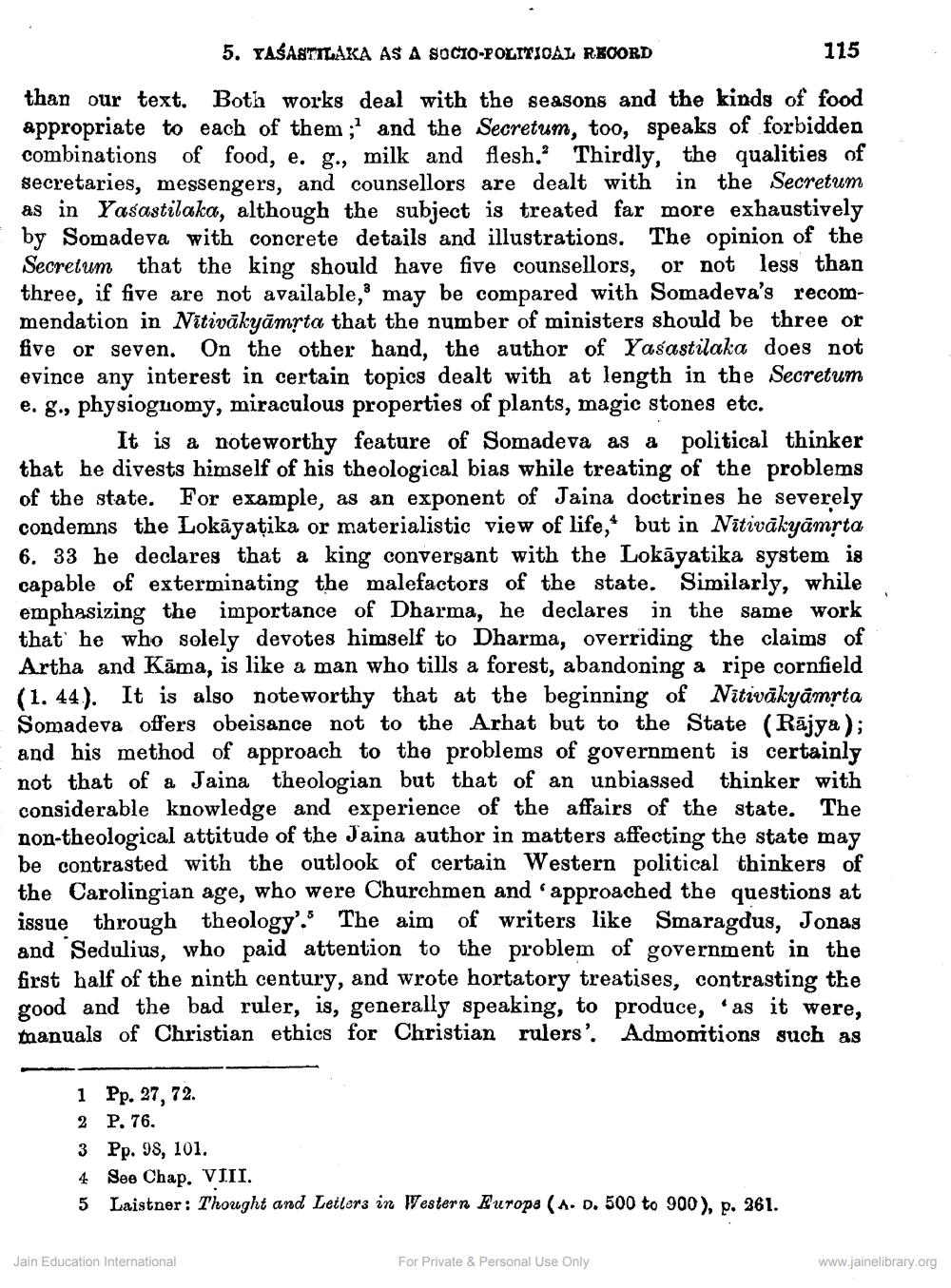________________
5. YASASTILAKA AS A SOCIO-POLITICAL RECORD
than our text.
Both works deal with the seasons and the kinds of food appropriate to each of them; and the Secretum, too, speaks of forbidden combinations of food, e. g., milk and flesh. Thirdly, the qualities of secretaries, messengers, and counsellors are dealt with in the Secretum as in Yasastilaka, although the subject is treated far more exhaustively by Somadeva with concrete details and illustrations. The opinion of the Secretum that the king should have five counsellors, or not less than three, if five are not available, may be compared with Somadeva's recommendation in Nitivākyāmṛta that the number of ministers should be three or five or seven. On the other hand, the author of Yasastilaka does not evince any interest in certain topics dealt with at length in the Secretum e. g., physiognomy, miraculous properties of plants, magic stones etc.
4
It is a noteworthy feature of Somadeva as a political thinker that he divests himself of his theological bias while treating of the problems of the state. For example, as an exponent of Jaina doctrines he severely condemns the Lokayaṭika or materialistic view of life, but in Nitivākyāmṛta 6. 33 he declares that a king conversant with the Lokayatika system is capable of exterminating the malefactors of the state. Similarly, while emphasizing the importance of Dharma, he declares in the same work that he who solely devotes himself to Dharma, overriding the claims of Artha and Kama, is like a man who tills a forest, abandoning a ripe cornfield (1.44). It is also noteworthy that at the beginning of Nitiväkyāmṛta Somadeva offers obeisance not to the Arhat but to the State (Rajya); and his method of approach to the problems of government is certainly not that of a Jaina theologian but that of an unbiassed thinker with considerable knowledge and experience of the affairs of the state. The non-theological attitude of the Jaina author in matters affecting the state may be contrasted with the outlook of certain Western political thinkers of the Carolingian age, who were Churchmen and 'approached the questions at issue through theology'. The aim of writers like Smaragdus, Jonas and Sedulius, who paid attention to the problem of government in the first half of the ninth century, and wrote hortatory treatises, contrasting the good and the bad ruler, is, generally speaking, to produce, as it were, manuals of Christian ethics for Christian rulers'. Admonitions such as
1 Pp. 27, 72.
2 P. 76.
5
3 Pp. 98, 101.
4
See Chap. VIII.
5 Laistner: Thought and Letters in Western Europe (A. D. 500 to 900), p. 261.
Jain Education International
115
For Private & Personal Use Only
www.jainelibrary.org




